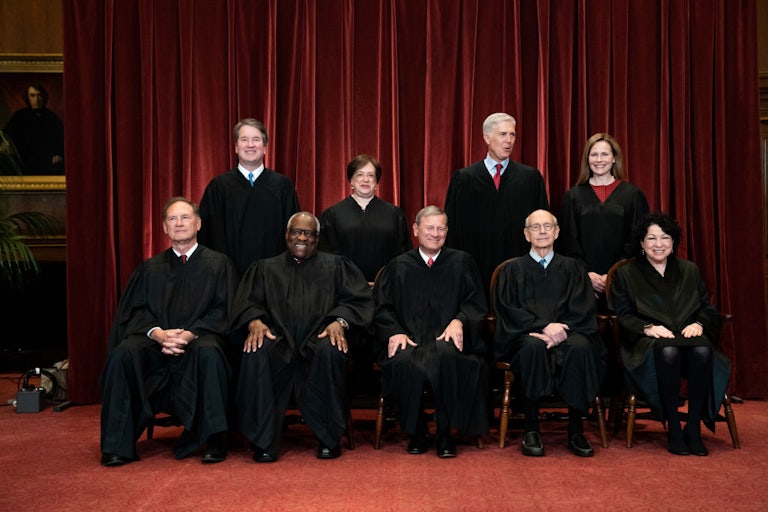Trump Gets Huge Boost as GOP Slips New Court Rules Into Budget
Republicans are seeking to limit the power of the courts.

House Republicans passed Donald Trump’s “big, beautiful” budget early Thursday, advancing a reconciliation package to the Senate that had been jammed through committee hearings held largely in the dead of night.
But in the process of sneaking the budget to the upper chamber, Republicans tacked on an unexpected and dangerous provision that had nothing to do with Medicaid, overtime tax, or reducing the federal deficit. Instead, they added a detail that would hamper federal courts’ ability to “hold government officials in contempt when they violate court orders,” according to Berkeley Law School Dean Erwin Chemerinsky.
The addendum follows repeat losses for the president in the court system. Since January, the judiciary has been the only branch of government standing in Trump’s way when it comes to enacting his executive orders, perhaps most notably on his attempts to end constitutional rights such as birthright citizenship and habeas corpus.
“Now is not the time to limit the ability of federal courts to enforce their judicial orders,” Chemerinsky implored in a column on JustSecurity earlier this week.
A Pew Research Center survey from April indicated that the vast majority of the American public—Republicans and Democrats—want the Trump administration to end an action if it’s deemed illegal by a federal court. But the provision in the reconciliation bill would make that goal all the more difficult by retroactively requiring a “security”—such as a bond—to be paid by a plaintiff before an order is issued.
That detail would effectively render countless court orders, across the board, unenforceable, according to Chemerinsky, since “federal courts rarely have required plaintiffs to post bonds.”
“Even when the government had been found to violate the Constitution, nothing could be done to enforce the injunctions against it,” Chemerinsky noted. “In fact, the greatest effect of adopting the provision would be to make countless existing judicial orders unenforceable. If enacted, judges will be able to set the bond at $1 so it can be easily met. But all existing judicial orders where no bond was required would become unenforceable.”
The budget passed by just a hair Thursday morning, with two Republicans joining all Democrats in voting against it and 215 Republicans voting in favor.








